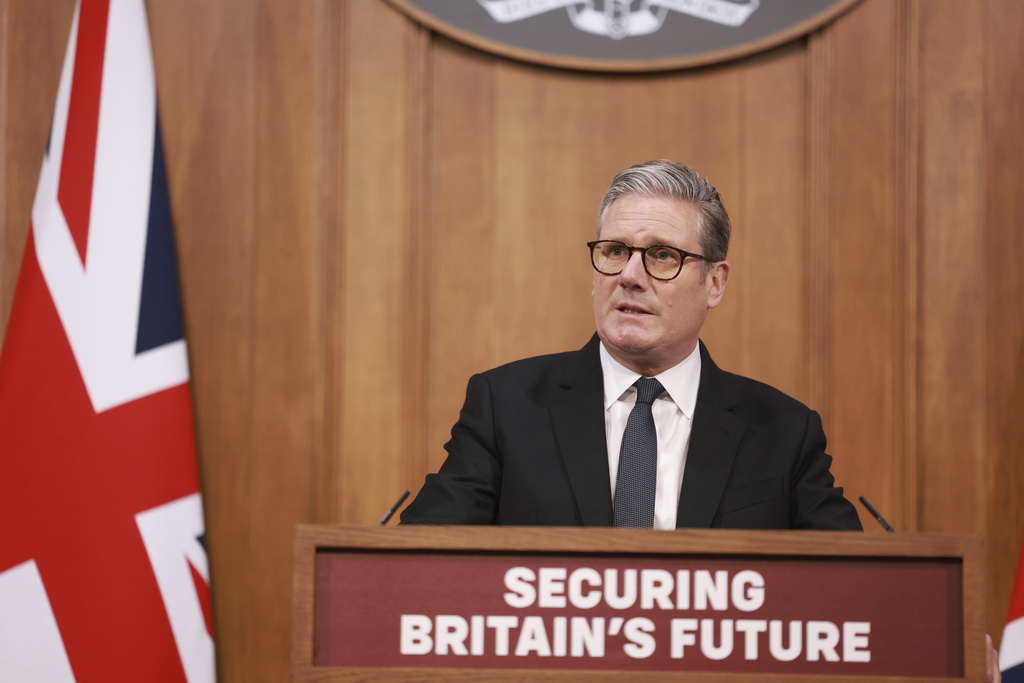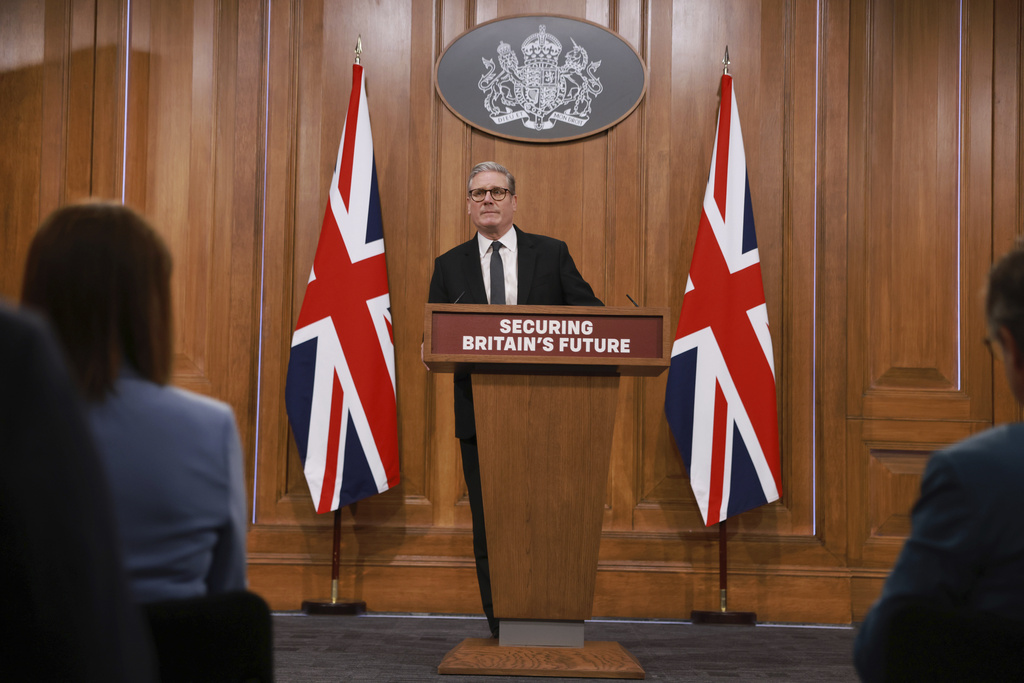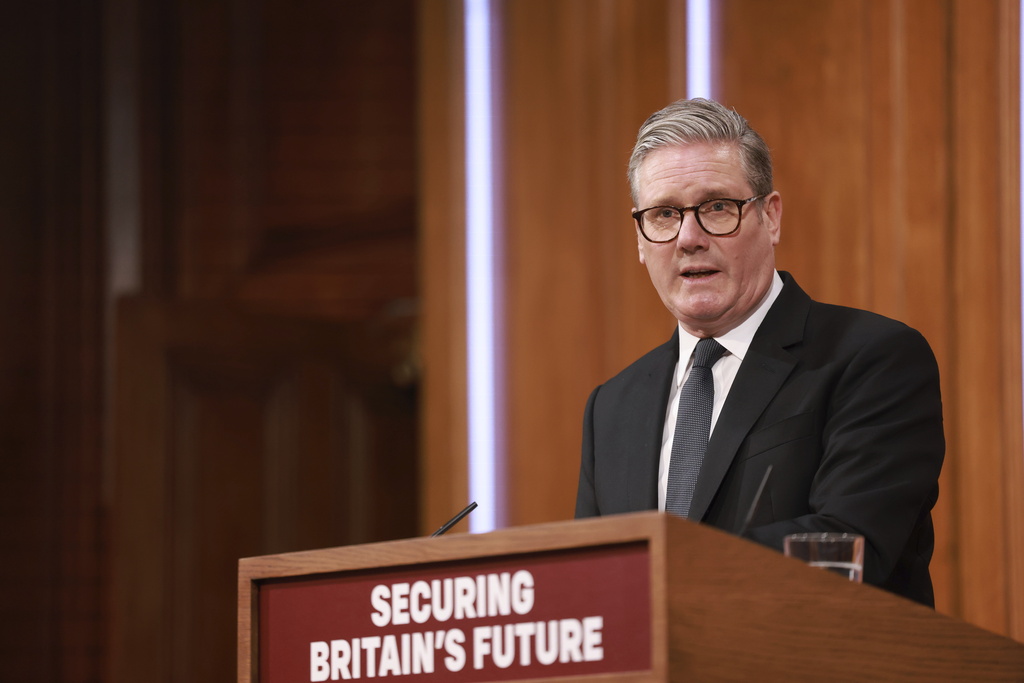UK Government Vows Again to "Take Back Control" and Curtail Immigration

LONDON (AP) — On Monday, British Prime Minister Keir Starmer vowed to reduce immigration figures and make it more difficult for individuals to establish residency in the UK. This move addresses a problem that has persistently troubled consecutive administrations and contributed to the ascent of anti-immigration sentiment. new anti-immigrant party That might endanger the nation's political leadership.
Starmer, whose center-left Labour Party won a landslide victory Last July, officials were under pressure from constituents who are growing more irritated due to substantial immigration levels. Many people think these numbers have overburdened public services and exacerbated ethnic conflicts in certain areas of the nation.

Starmer stated he would terminate "Britain's unsuccessful policy of unrestricted borders," just days after Reform UK, the far-right party headed by Nigel Farage, achieved significant gains in local elections. Both Labour and the mainstream Conservative Party, which have traditionally been the leading political forces in Britain, experienced a substantial decline in voter backing during the polls for regional administration councils and mayor positions.

All aspects of the immigration framework — including employment, family reunification, and education — will be made stricter to provide us with greater control," Starmer stated during a speech at Downing Street. "Our aim is to establish a system that is managed, selective, and equitable.
Immigration has been a potent issue in Britain for decades — especially since 2004, when the European Union expanded to Eastern Europe. While most EU countries restricted immigration from the new member states for several years, the U.K. immediately opened its labor market.
In 2010, former Prime Minister David Cameron committed to reducing yearly net migration below 100,000; however, this objective eluded four successive conservative administrations. By 2016, frustration with the government’s failure to manage immigration from the European Union played a significant role in driving Britons' decision-making process regarding Brexit. vote to leave the bloc .
But Brexit did nothing to reduce the number of people entering the country on visas for work, education and family reunification. Net migration — the number of people entering the U.K. minus those who left — topped 900,000 in the year to June 2023, according to official figures, almost four times the pre-Brexit level. The surge was driven in part by hundreds of thousands of people fleeing war in Ukraine and China's clampdown in Hong Kong. Net immigration fell to 728,000 in the year to June 2024.

In recent years, worries that the government has lost oversight of Britain’s borders have intensified due to the visibility of countless migrants. entering the U.K. In flimsy, inflatable vessels run by smugglers, approximately 37,000 individuals traversed the English Channel via small boats in the previous year.
Starmer has pledged to reduce this figure by targeting the criminal networks involved in organizing these crossings.
He has now pledged to significantly decrease lawful immigration—without specifying an amount—by reducing the number of visas issued for low-wage jobs, increasing minimum salary requirements for employment-based visas, and boosting English competency standards for immigrants.

Starmer adopted the language of the pro-Brexit campaign he once opposed, saying his government would “take back control” of Britain’s borders.
He said previous Conservatiive governments had overseen “a one-nation experiment in open borders, conducted on a country that voted for control. Well, no more.”
Government plans published Monday pledge to slash the number of visas for low-skilled jobs and end overseas recruitment for care homes — essential but usually low-paid work. The government said it would improve employment conditions in order to attract British workers to those jobs, but did not give details.
Martin Green, chief executive of industry body Care England, said international recruitment was “a lifeline” for the sector.
“Taking it away now, with no warning, no funding and no alternative, is not just short-sighted – it’s cruel,” he said.
Alleging that parts of the British economy had become “almost addicted” to cheap immigrant labor, Starmer said the government would invest more in apprenticeships and training for British workers.
It is a promise British governments have made, and failed to keep, before.
Under the new rules most immigrants will have to live in the U.K. for 10 years, rather than the current five, to qualify for citizenship, with shorter waits for those who contribute and integrate.
Starmer stated that "migration is woven into Britain's national narrative," however, he warned that without strict regulations "we might end up as an isolated country filled with outsiders instead of a society that progresses collectively."
Groups representing refugees and some Labour members expressed discomfort with Starmer’s choice of words, particularly his assertion that substantial immigration has caused "immeasurable harm" to British society. Labour MP Sarah Owen commented on the platform Bluesky stating, “trying to mimic the rhetoric of the right could lead our nation into a deeply troubling future."
Chris Philp, the Tory spokesperson for immigration, stated that Labour’s suggestions do not sufficiently address the issue.
The public rightfully desires an end to large-scale migration," he stated, advocating for "an enforceable yearly limit on immigration to be established by Parliament.
Post a Comment for "UK Government Vows Again to "Take Back Control" and Curtail Immigration"
Post a Comment